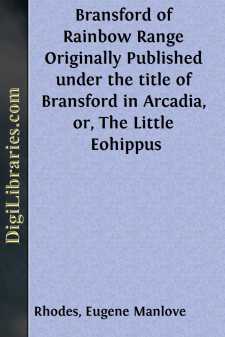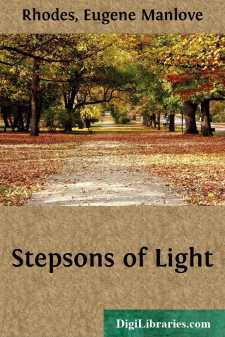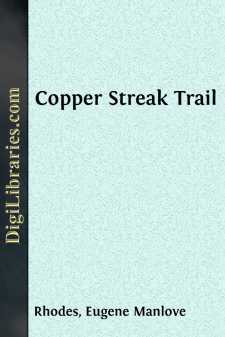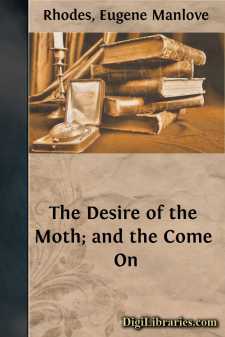Categories
- Antiques & Collectibles 13
- Architecture 36
- Art 48
- Bibles 22
- Biography & Autobiography 813
- Body, Mind & Spirit 142
- Business & Economics 28
- Children's Books 17
- Children's Fiction 14
- Computers 4
- Cooking 94
- Crafts & Hobbies 4
- Drama 346
- Education 46
- Family & Relationships 57
- Fiction 11829
- Games 19
- Gardening 17
- Health & Fitness 34
- History 1377
- House & Home 1
- Humor 147
- Juvenile Fiction 1873
- Juvenile Nonfiction 202
- Language Arts & Disciplines 88
- Law 16
- Literary Collections 686
- Literary Criticism 179
- Mathematics 13
- Medical 41
- Music 40
- Nature 179
- Non-Classifiable 1768
- Performing Arts 7
- Periodicals 1453
- Philosophy 64
- Photography 2
- Poetry 896
- Political Science 203
- Psychology 42
- Reference 154
- Religion 513
- Science 126
- Self-Help 84
- Social Science 81
- Sports & Recreation 34
- Study Aids 3
- Technology & Engineering 59
- Transportation 23
- Travel 463
- True Crime 29
Eugene Manlove Rhodes
Eugene Manlove Rhodes (1869–1934) was an American author known for his Western-themed novels and stories. Often called the "cowboy chronicler," Rhodes wrote vividly about the life and culture of the American West, drawing from his own experiences as a cowboy in New Mexico. His notable works include "Paso Por Aqui" and "Bransford in Arcadia," which highlight his deep knowledge of the region and its people. Rhodes' writing is celebrated for its authenticity, wit, and strong sense of place.
Author's Books:
Sort by:
CHAPTER IWILLIAM GOES TO THE PICTURES It all began with Williamâs aunt, who was in a good temper that morning, and gave him a shilling for posting a letter for her and carrying her parcels from the grocerâs. âBuy some sweets or go to the Pictures,â she said carelessly, as she gave it to him. William walked slowly down the road, gazing thoughtfully at the coin. After deep...
more...
STEPSONS OF LIGHT There are two sorts of people—those who point with pride and those who view with alarm. They are quite right. The world will not soon forget Parkman “of Ours.” Here was a man of learning, common sense, judgment and wide sympathies. Yet once he stumbled; the paregorical imperative, which impels each of us to utter ignominious nonsense, urged Francis Parkman to the like...
more...
CHAPTER I The stage line swung aside in a huge half-circle, rounding the northern end of the Comobabi Range and swinging far out to skirt the foothills. Mr. Peter Johnson had never been to Silverbell: his own country lay far to the north, beyond the Gila. But he knew that Silverbell was somewhere east of the Comobabi, not north; and confidently struck out to find a short cut through the hills. From...
more...
Chapter I "Little Next Door—her years are few— Loves me, more than her elders do; Says, my wrinkles become me so; Marvels much at the tales I know. Says, we shall marry when she is grown——" The little happy song stopped short. John Wesley Pringle, at the mesa's last headland, drew rein to adjust his geography. This was new country to him. Close...
more...





